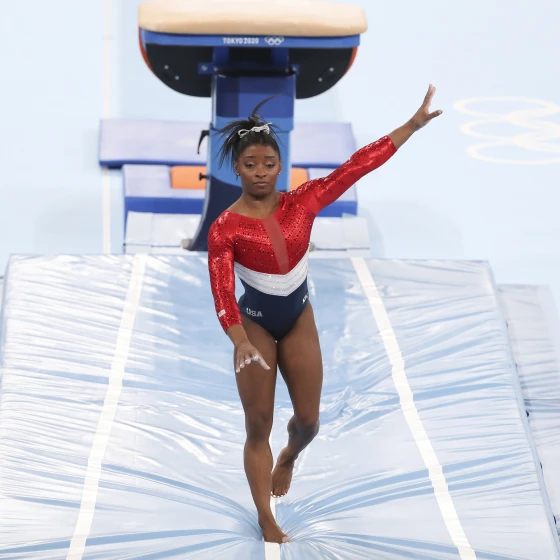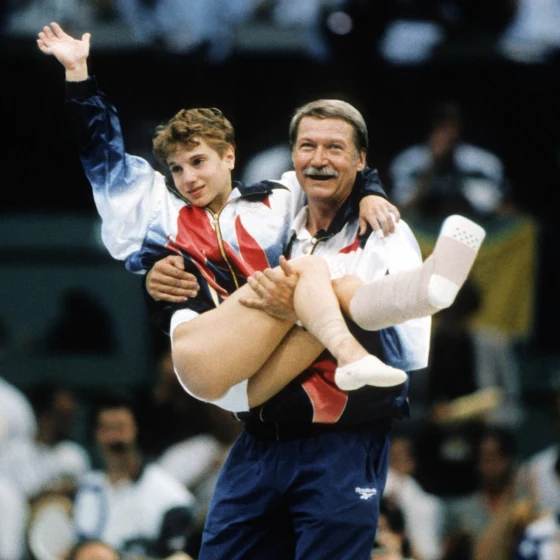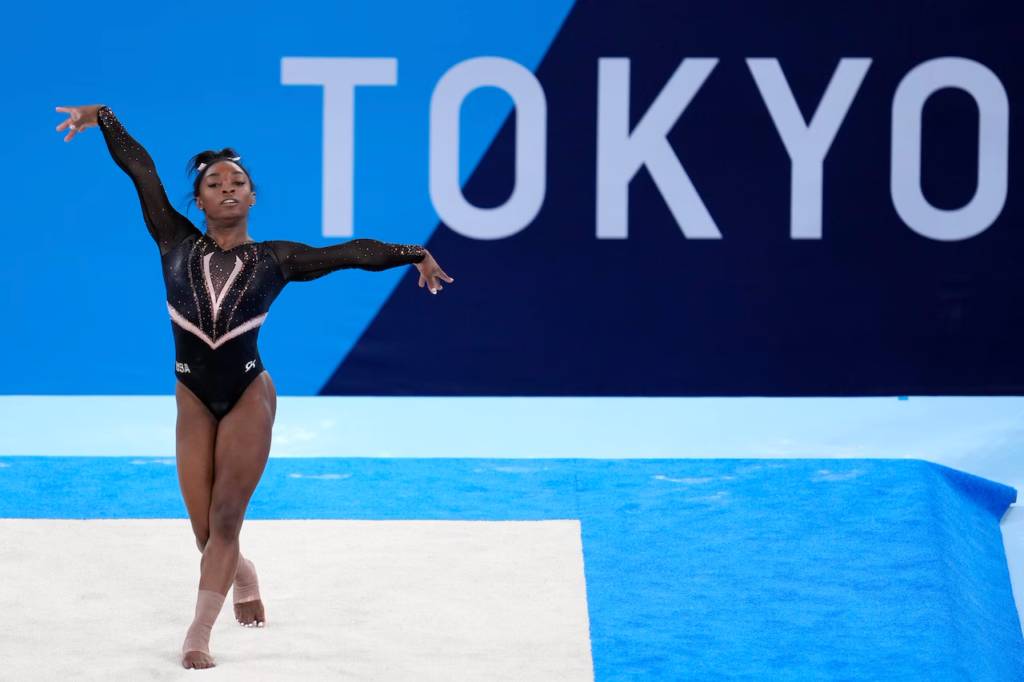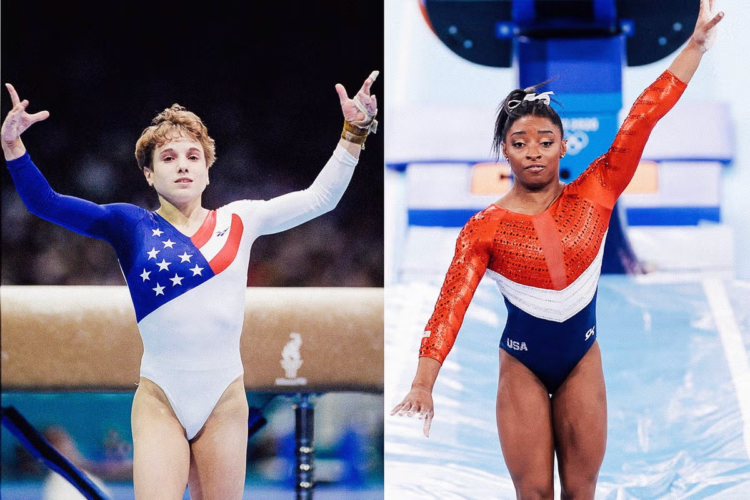When Simone Biles chose to withdraw from multiple events at the Tokyo Olympics in 2021, the decision sparked widespread debate and drew comparisons to another iconic moment in gymnastics history: Kerri Strug’s heroic performance at the 1996 Olympics. In her new Netflix documentary, “Simone Biles Rising,” Biles delves into these comparisons and reveals the complexities behind her decision, offering insights that resonate deeply within the cheerleading community.
Biles’ decision to step back during the Tokyo Games came amidst intense scrutiny. Critics were quick to draw parallels between Biles and Strug, who famously executed a vault on a severely injured ankle to secure the first team gold medal for the U.S. women’s gymnastics team. While Strug’s act of courage became legendary, Biles’ choice to prioritize her mental health sparked a necessary conversation about the pressures athletes face.
Cheerleaders, much like gymnasts, understand the relentless pursuit of perfection and the physical and mental toll it takes. The phenomenon Biles experienced, known as the “twisties,” occurs when gymnasts lose their spatial awareness mid-air, risking catastrophic injury. This mirrors the challenges cheerleaders face when executing high-skill stunts and routines that demand precision and confidence.
In “Simone Biles Rising,” Biles candidly discusses the mental health struggles she faced leading up to and during the Tokyo Olympics. Her transparency about experiencing the “twisties” and the overwhelming mental burden shines a light on an often overlooked aspect of athletic performance. For cheerleaders, Biles’ story underscores the critical importance of mental health in achieving peak performance.

The pressure to perform, coupled with the fear of being labeled a quitter, is a familiar narrative in cheerleading. Athletes are often encouraged to push through pain and adversity, but Biles’ decision emphasizes that mental health should never be sacrificed for the sake of competition. Her courage in prioritizing her well-being sets a powerful example for cheerleaders and athletes in all sports.
Kerri Strug’s 1996 vault is an iconic moment in Olympic history, celebrated for its bravery and determination. However, Biles and others in the gymnastics community now view this moment with a more critical eye. In the documentary, Biles reflects on the pressure Strug faced to compete despite her injury, highlighting a shift in how athletes’ health and safety are prioritized.
Cheerleading, much like gymnastics, has evolved in its approach to athlete safety. Coaches and athletes are increasingly aware of the long-term consequences of performing with injuries. Strug’s performance, while heroic, serves as a cautionary tale about the physical and emotional costs of such feats. Today, there is a greater emphasis on ensuring that athletes are not pressured to jeopardize their health for the sake of victory.
Following Biles’ decision in Tokyo, Strug publicly supported her, acknowledging the differences in their situations and advocating for respect for each athlete’s individual experience. “Simone knew what was best for her,” Strug said, emphasizing the importance of trusting athletes to make decisions about their own well-being. This support from a fellow gymnast reinforces the evolving understanding that mental and physical health must come first.

Biles’ journey offers valuable lessons for the cheerleading community. Her story is a testament to resilience, the importance of mental health, and the necessity of evolving perspectives on athlete safety. For cheerleaders, Biles’ experience is a reminder that true champions prioritize their health and well-being above all else.
One of the key takeaways from Biles’ experience is the crucial role that coaches and support systems play in an athlete’s journey. Coaches are not only responsible for training athletes physically but also for recognizing the signs of mental and emotional distress. In cheerleading, where trust between athletes and coaches is paramount, it is essential for coaches to foster an environment where athletes feel safe to express their struggles and seek help when needed.
The support system extends beyond coaches to include teammates, family, and friends. Biles’ openness about her challenges has paved the way for athletes in cheerleading to talk more openly about their own mental health issues. Building a strong support network can help cheerleaders manage the pressures of competition and maintain a healthy balance between their sport and personal lives.

Biles’ decision to withdraw from the Tokyo Olympics highlights the importance of empowering athletes to make decisions about their own health and well-being. In cheerleading, this means giving athletes the autonomy to voice their concerns and make informed choices about their participation in routines and competitions.
Athletes should be educated about the potential risks associated with their sport and encouraged to prioritize their health. It’s empowering to see growth in an environment where athletes feel supported and empowered, in this mindset, cheerleading can continue to thrive while ensuring the safety and well-being of its participants.
Simone Biles’ decision to withdraw from the Tokyo Olympics and her reflections on Kerri Strug’s 1996 performance highlight significant shifts in how we view athlete health and well-being. Her journey resonates deeply within the cheerleading community, offering important lessons about the pressures to perform, the importance of mental health, and the evolving understanding of what it means to be a champion.
As Biles prepares for the Paris Olympics, her story continues to inspire athletes worldwide. Cheerleaders can draw strength from her example, understanding that it’s okay to step back when needed and that taking care of one’s mental health is a sign of strength, not weakness.
Watch Simone Biles Rising, streaming now on Netflix.


























